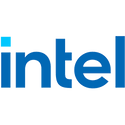The SEA Projects Prepare Europe for Exascale Supercomputing
The HPC research projects DEEP-SEA, IO-SEA and RED-SEA are wrapping up this month after a three-year project term. The three projects worked together to develop key technologies for European Exascale supercomputers, based on the Modular Supercomputing Architecture (MSA), a blueprint architecture for highly efficient and scalable heterogeneous Exascale HPC systems. To achieve this, the three projects collaborated on system software and programming environments, data management and storage, as well as interconnects adapted to this architecture. The results of their joint work will be presented at a co-design workshop and poster session at the EuroHPC Summit (Antwerp, 18-21 March, www.eurohpcsummit.eu).







































































